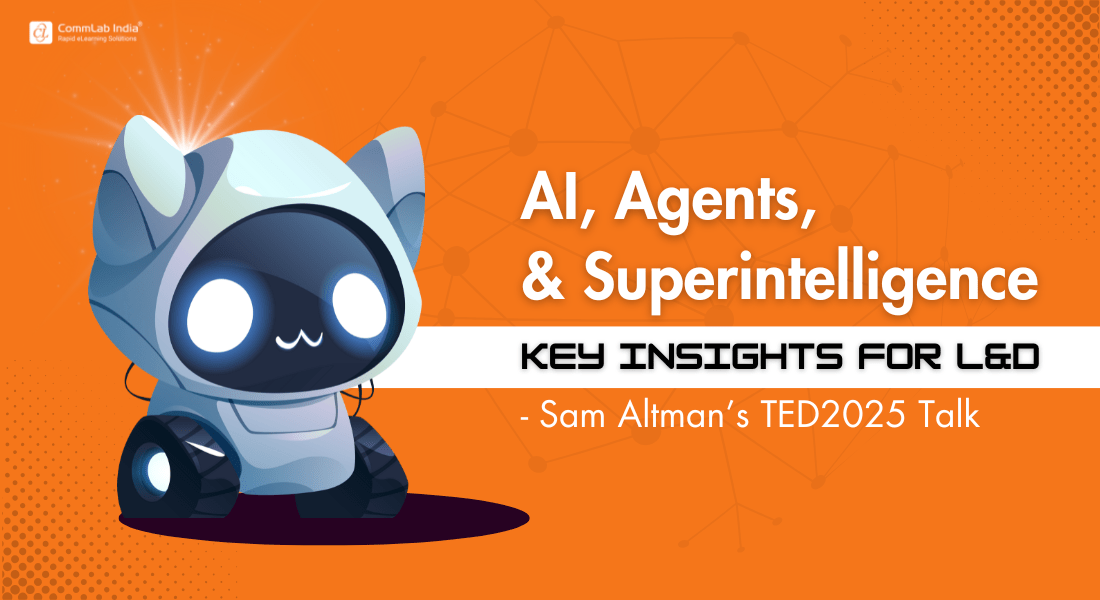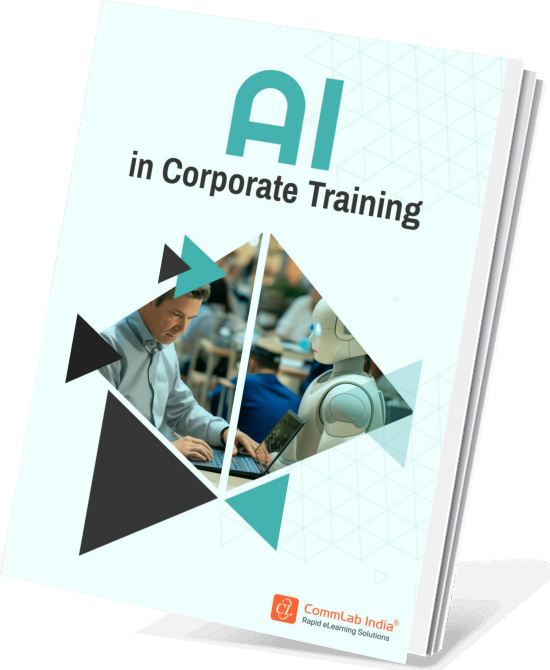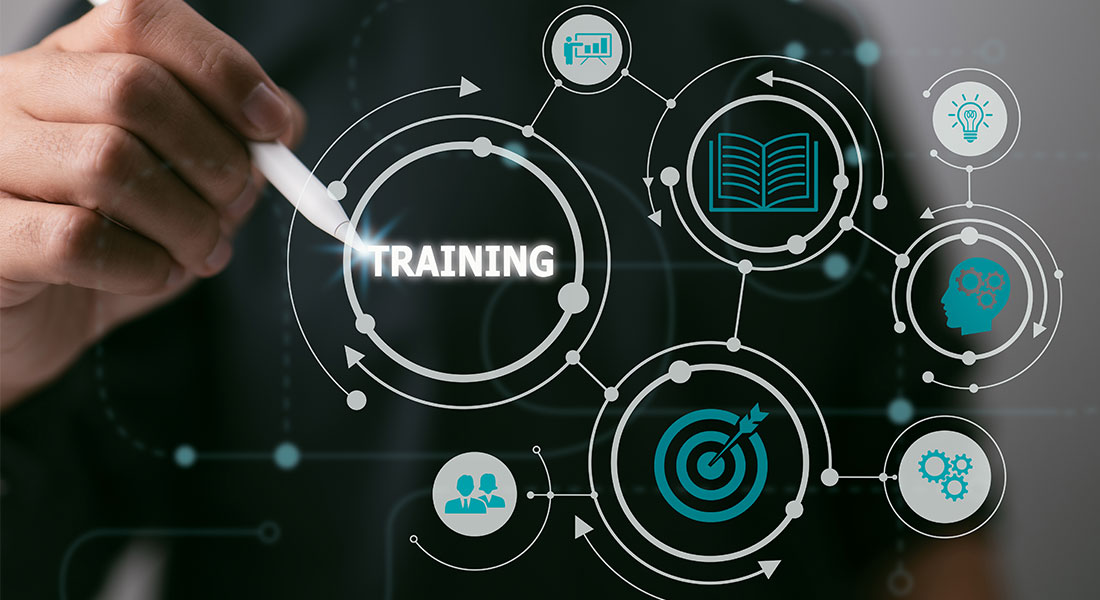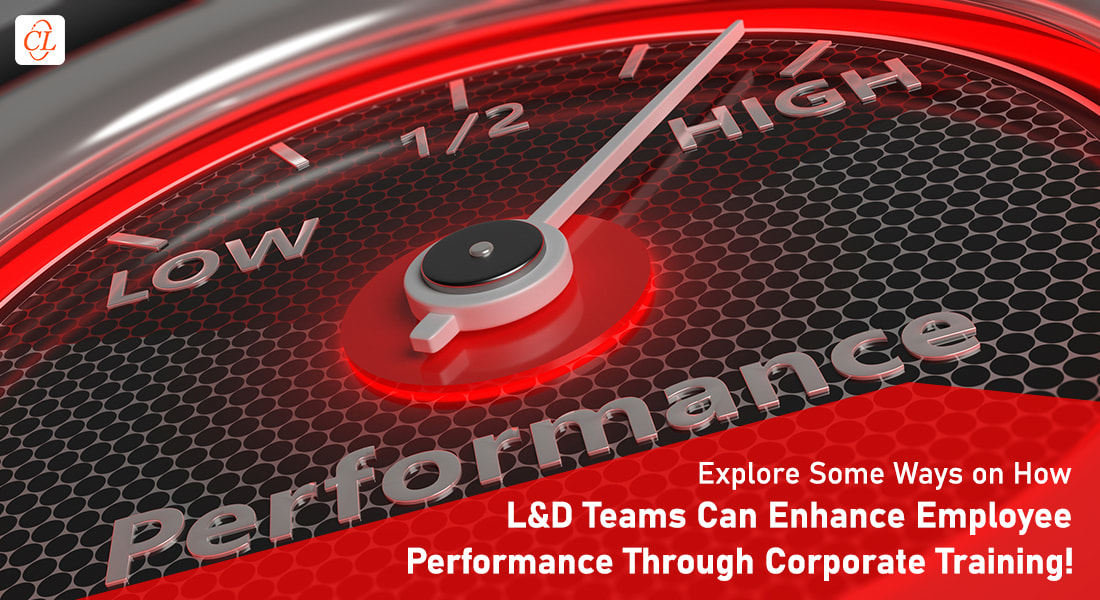AI, Agents, & Superintelligence: Takeaways for L&D from Sam Altman’s TED2025 Talk

As an L&D professional, I’m constantly scanning the horizon for shifts that could reshape how we help people learn, grow, and succeed. Watching Sam Altman, CEO of OpenAI, speak at TED2025 was one of those rare moments where you don’t just see a trend – you see the future arriving.
What he shared about the rapid advancements in artificial intelligence (AI), especially agentic AI and superintelligence, has profound implications for us in Learning & Development (L&D). Here’s my personal reflection on what it all means for our field, our roles, and the people we serve.
→ Download Now: AI in Corporate Training
Table of Contents
- Agentic AI: A New Era of Intelligent Learning Support
- Democratization vs. Disruption: The Balancing Act Ahead
- Ethics & Safety: Our Responsibility in an AI-Powered World
- Addressing the Emotional Side: Fear, Change, and Opportunity
- Altman’s Closing Reminder: The Pace Won’t Slow Down
Agentic AI: A New Era of Intelligent Learning Support
Role of L&D Pros in the Age of AI
We need to:
- Evolve from content developers to learning experience designers
- Move from providers of learning to architects of dynamic learning environments
- Build ‘ethical AI muscle’ – employees who are AI-capable and AI-responsible
- Guide our employees through one of the biggest transitions in workforce history
Sam Altman introduced the concept of agentic AI – AI systems that can autonomously perform tasks, make decisions, and proactively execute actions on behalf of users.
For L&D, this isn't just a technical upgrade – it's a complete paradigm shift.
Imagine:
- Learning agents that personalize training paths for every learner, adapting content based on individual skill gaps, job roles, and career aspirations.
- AI coaching tools that observe real-time job performance and offer targeted feedback or learning interventions at the moment of need.
- Automated knowledge curation where learning content stays current, accurate, and tailored to organizational needs – without manual updates.

Democratization vs. Disruption: The Balancing Act Ahead
One of Altman’s key points was how AI is democratizing access to expertise. This sounds wonderful – but it comes with disruption.
Here’s what struck me as an L&D professional:
1. Expertise compression
AI models can now simulate expert reasoning across domains, reducing reliance on traditional SME-driven content creation.
2. Accelerated skill cycles
As job roles evolve faster, L&D must shift to more agile, modular, and real-time learning solutions that keep pace.
3. Learner autonomy
Employees may increasingly bypass formal training programs, relying instead on AI copilots for on-demand learning.
We need to redefine our value proposition – not as sole providers of learning, but as curators, guides, and architects of dynamic, AI-powered learning environments.
Ethics & Safety: Our Responsibility in an AI-Powered World
Altman didn’t shy away from addressing AI’s risks – from misinformation to misuse to ethical concerns. This hit home for me because L&D will play a crucial role in building AI literacy and responsibility across the workforce.
Our new responsibilities include:
1. AI literacy training
Employees must understand not just how to use AI tools, but how to use them responsibly.
2. Critical thinking development
As AI-generated content becomes widespread, learners must know how to evaluate its accuracy, credibility, and bias.
3. Supporting governance
L&D should partner with compliance and leadership to ensure that ethical AI usage becomes part of onboarding, certifications, and ongoing training.
We are in a unique position to build an organization’s ‘ethical AI muscle’ – ensuring employees are not only AI-capable, but AI-responsible.

AI in Corporate Training
Partner, Not Replacement
- AI in Corporate Training
- AI Toolkit for Super-charged Learning
- Challenges to Consider with AI Implementation
- And More!
Addressing the Emotional Side: Fear, Change, and Opportunity
Altman’s empathy toward those feeling anxious about AI’s pace really resonated with me. I see this anxiety every day in organizations – employees unsure about how AI might impact their jobs.
L&D has an essential role to play in managing this emotional landscape:
- Reskilling and upskilling pathways that help employees pivot confidently into emerging roles.
- Human-centered skill development focused on creativity, empathy, leadership, collaboration – the skills AI can’t replicate.
- Transparent communication that clarifies how AI will be integrated into workflows, reducing fear of the unknown.

Altman’s Closing Reminder: The Pace Won’t Slow Down
Sam Altman closed with a sobering reality: AI’s progress is advancing like a force of nature – fast, unstoppable, and transformational. For us in L&D, that means we don’t have the luxury of waiting.
- AI won’t replace L&D – but L&D that refuses to adapt may be replaced.
- The future of learning belongs to those who embrace AI as a partner, not a threat.
- Our organizations need us to lead the way – responsibly, strategically, and humanely.
Watch the complete talk here!
My Closing Thought
As I reflect on Altman’s talk, I’m convinced that this is one of the most pivotal moments for our profession. The role of L&D is not shrinking – it’s expanding into new, more strategic territory.
This is our time to lead learning into the AI-powered future – with confidence, with purpose, and with people at the center.





